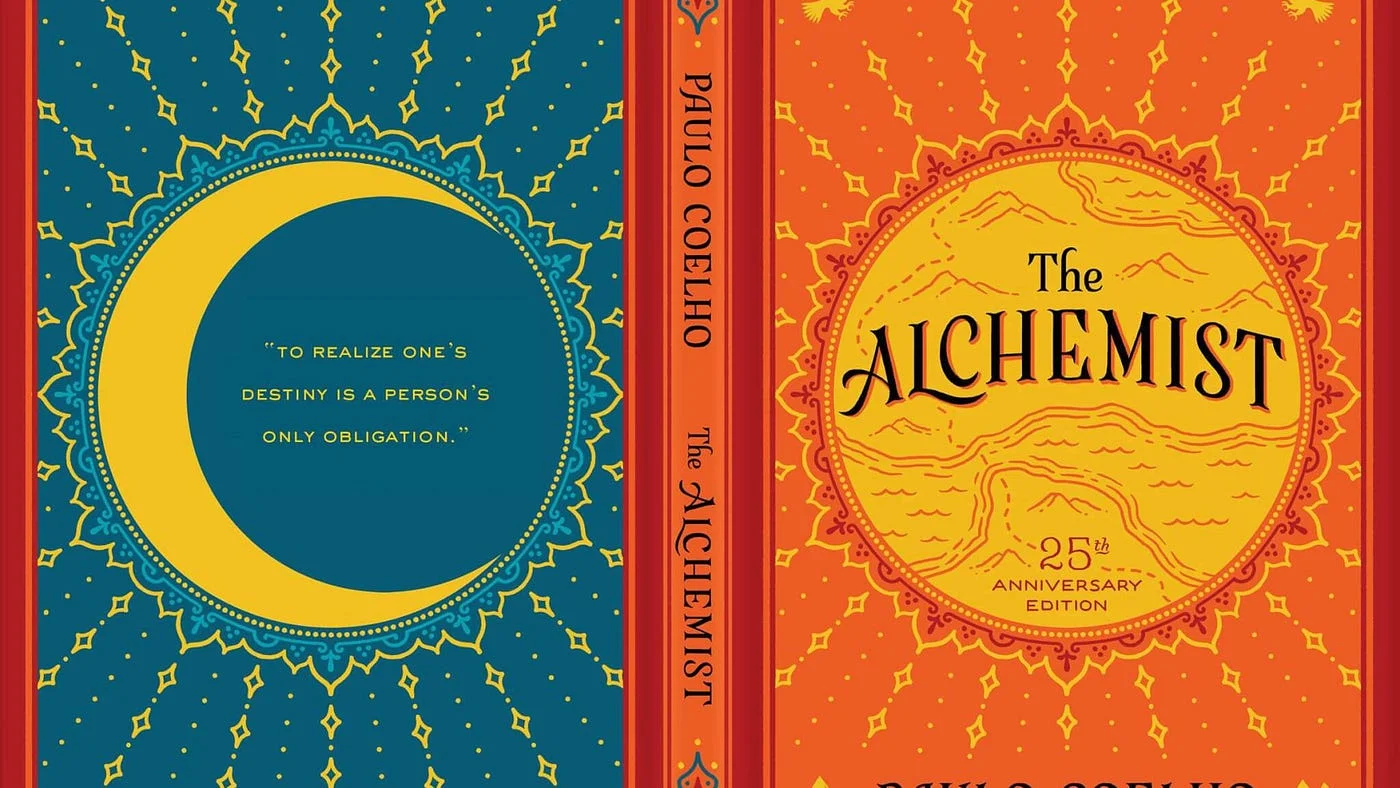Paulo Coelho’s The Alchemist has captivated millions of readers worldwide with its poetic language, inspirational themes, and timeless message about following one’s dreams. At first glance, the novel reads like a fable or an allegorical tale—a young shepherd named Santiago embarks on a journey to discover his “Personal Legend,” or life’s purpose. However, beneath the surface of this enchanting adventure lies a rich tapestry of spiritual and philosophical undertones. This has led many to ask: is The Alchemist really a religious book in disguise?
To answer this question, it’s important to explore the book’s key themes, symbolic elements, and the broader context in which it was written. While Coelho never explicitly aligns his work with any specific religion, his narrative contains universal spiritual principles that resonate across faiths. The result is a story that feels both personal and transcendent—a spiritual guide wrapped in the form of fiction.
The Spiritual Core of the Story
From the very beginning, The Alchemist sets itself apart as more than a typical coming-of-age novel. Santiago’s journey is not just physical; it is deeply internal and spiritual. He is guided by dreams, omens, and mysterious figures like Melchizedek, the King of Salem—a name that has strong biblical connotations. In fact, Melchizedek is a character from the Hebrew Bible, appearing in the Book of Genesis as a priest-king who blesses Abraham. His presence in The Alchemist immediately signals that Santiago’s quest is about more than gold—it’s about understanding the divine.
Throughout the novel, characters frequently reference “the Soul of the World,” a concept that evokes the spiritual idea of interconnectedness. According to the Englishman Santiago meets along the way, this Soul is a unifying spirit present in all things. This notion is strongly aligned with pantheistic or mystical beliefs that see divinity not as a distant god, but as a force woven into the fabric of existence. The idea that everything in the universe conspires to help one achieve their dreams borders on theological, suggesting a benevolent, purposeful cosmos.
God, Omens, and the Language of the World
While The Alchemist does not use traditional religious language (like prayer, worship, or scripture), it introduces spiritual mechanisms that resemble divine communication. Omens play a central role in Santiago’s decisions, guiding him toward the next step on his journey. These signs, whether from nature or dreams, resemble the ways in which people across cultures and religions believe the divine speaks to them—through intuition, symbolism, or coincidence.
Santiago learns to read the “Language of the World,” which is not a spoken dialect, but rather a universal mode of understanding through emotion, connection, and awareness. This concept echoes spiritual traditions in both Eastern and Western philosophy. In Christianity, this may be likened to the “still small voice” of God, while in Sufism or Buddhism, it reflects the inner path to enlightenment. Coelho blends these influences seamlessly, making the novel resonate with readers regardless of their religious background.
The Alchemist as a Prophet Figure
One of the most compelling spiritual figures in the novel is the Alchemist himself, who serves as Santiago’s final mentor. Wise, patient, and enigmatic, the Alchemist teaches Santiago how to master fear and understand the secrets of the universe. He speaks in parables and poetic aphorisms, much like religious sages or prophets in sacred texts.
His teachings are often moral and spiritual rather than practical. For instance, he explains that “when we strive to become better than we are, everything around us becomes better too.” This mirrors the ethical imperatives found in many religions, which encourage personal growth as a means to uplift the community and honor the divine.
Moreover, the Alchemist’s guidance helps Santiago realize that the treasure he seeks is not external but internal. The gold buried near the Egyptian pyramids is symbolic—what truly matters is the journey, the transformation, and the awakening of the soul. This theme of inward discovery aligns closely with religious teachings that prioritize spiritual development over material gain.
Universality Over Dogma
Despite these religious elements, it would be misleading to label The Alchemist as a book promoting a specific faith. Coelho deliberately avoids sectarianism, allowing readers of all backgrounds to find meaning in the story. His emphasis on universal spiritual truths—such as purpose, destiny, love, and unity—transcends religious boundaries.
In interviews, Paulo Coelho has expressed admiration for multiple spiritual paths, from Catholicism to mysticism to Islam. This pluralistic approach is reflected in The Alchemist, which borrows imagery and concepts from various traditions without being bound to any. This gives the novel a kind of spiritual neutrality, making it accessible to a global audience.
Rather than promoting doctrine, the book encourages readers to listen to their hearts, trust in the journey, and remain open to the lessons the world offers. In this way, The Alchemist functions more like a spiritual compass than a religious manual.
Philosophical and Mystical Influences
Another layer of the novel’s spiritual depth comes from its philosophical roots. The Alchemist draws from existentialism, Jungian psychology, and alchemical symbolism. Alchemy, in particular, is a metaphor for transformation—turning base metals into gold, or metaphorically, turning ordinary life into a meaningful existence.
This transformation requires faith—not necessarily in a deity, but in the process of growth and in one’s own inner voice. Santiago’s journey mirrors the path of the mystic, who moves through trials, learns from silence, and ultimately comes into harmony with the greater whole.
Such mysticism is central to traditions like Kabbalah, Sufism, and even Zen Buddhism, all of which suggest that ultimate truths are discovered not through reason alone, but through experience, intuition, and surrender.
A Spiritual Journey Cloaked in Fiction
So, is The Alchemist a religious book in disguise? The answer depends on how one defines “religious.” If religion is strictly about dogma, rituals, and institutional belief systems, then The Alchemist may not fit that definition. But if religion encompasses the search for meaning, the quest for purpose, and the experience of the divine in daily life, then the book is undoubtedly spiritual—and deeply so.
Paulo Coelho has written a novel that serves as a modern-day parable, inviting readers to explore their inner lives through the lens of a young shepherd’s dream. While it avoids religious labels, it embraces the essence of spiritual wisdom. The Alchemist is not about preaching faith but about awakening it—gently guiding the reader toward self-realization, much like a sacred text dressed in the language of fable and adventure.



